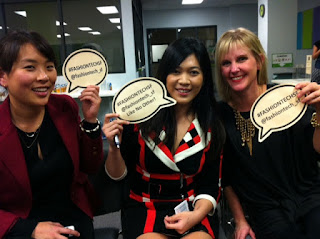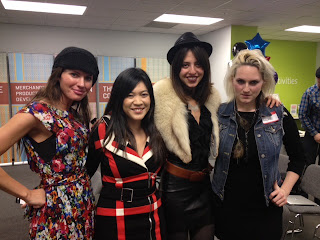In my particular case, it could be the perfectionist in me who seeks to optimize and believes 110% effort needs to be placed into everything- including decisions. The longer it takes for me to accumulate enough information and the more stakeholders I make happy, the more I feel I have a better shot at having made a good decision because of the sheer amount of effort and methodology I've placed into it and the number of people I'm still on good terms with. While applied effort and tireless optimization leads to good results in most cases, I don't think it really works in the case of making good decisions and being effective at co-founding a start-up. Here are my reasons:
1. In a start-up, you must act quickly. More moving and less analyzing is required to keep your team motivated, see measurable progress, and make mistakes quickly enough to discover new solutions. It's trite, but perfectionism and analysis paralysis really does kill.
2. Bike-shedding is more likely to occur when all of your decisions are a democratic process intended to please everyone. This is because everybody wants to feel special, appreciated, and like they've left their "mark"- hence the tendency to argue and stay mired in minor issues that are easier to be "experts" on, like the color of the bike shed, instead of examining pragmatic issues that really matter, like how to construct it.
3. Being right is different from being nice. Or maybe being truly nice is actually being willing to hurt people's feelings to be right. If you truly care about the well-being of your start-up and the well-being of your team, who have invested their precious time with the hope of success, it is selfish to protect your feelings by catering your decisions to others when you know they might be wrong. Concession and peace-making leads to diplomacy, not results. You don't want to people please in order to have a watered down product that you are embarrassed about.
4. Some of my best choices have been random decisions, the result of random occurrence or accident or made in the heat of the moment because of deadlines and pressures that forced me to act quickly and behave instinctively. Serendipity tends to occur when you veer off the plan, time pressure forces you to throw out extraneous information, and centuries of evolution have hard-wired us to know more than we think we know. Gut instinct is often key to making good decisions.
A fascinating psychological study called the Asch experiment revealed that people will conform to the opinion of a group regarding something as obviously wrong as the length of a line in order to remain liked:
And I wouldn't be surprised if this happens a lot in start-ups. It's very important not to drink your own Kool-aid and get lost in democracy when it comes to making decisions.
Even if the start-up has the appearance of a democracy, there is usually that one dominant person who makes everybody believe it is a democracy by carefully crafting choice architecture to speed things along.





